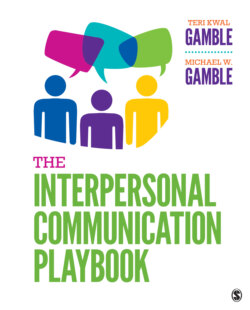Читать книгу The Interpersonal Communication Playbook - Teri Kwal Gamble - Страница 94
На сайте Литреса книга снята с продажи.
Loneliness and Self-Discontent Across Cultures
ОглавлениеEven though their cultures may differ, young people throughout the world are likely to share common perceptions regarding the self. Most hope to develop and sustain social relationships, especially with their peers, and most are optimistic regarding their abilities to assume responsibilities for themselves in the future. Despite the optimism of a majority of young people, between 25 and 30 percent of them also describe themselves as lonely, overwhelmed by life’s problems, and frequently sad,40 though the percentage varies widely from country to country. Among Japanese teens, 55 percent reported frequently feeling sad, and 39 percent reported feeling lonely.41 Britain also has a loneliness problem, with some 9 million Brits reporting in a 2017 report that they often or always feel lonely. Now the country has appointed a minister for loneliness.42
Those who find themselves with fewer people to talk with or share thoughts and experiences with more frequently report feeling lonely. Loneliness does not discriminate; it affects all whose opportunities for person-to-person contact are diminished, perhaps because of a fear of being rejected or the belief that they don’t fit in. Many people who are lonely wish they had a larger network of people to contact, yet, even when they do, for one reason or another they avoid reaching out, which can cause their feelings of social isolation to spiral out of control. To combat the tendency some of us have to isolate ourselves when feeling lonely, try the following:
Accept. When isolated, connection becomes difficult. Accept opportunities for connection even if you don’t want to go out.
Plan. Scatter potential opportunities to connect socially across your calendar. If you need to, plan something and invite one or more others to join you.
Join. Think of things you love to do and find others who share your passion. If you love reading, join a book club. If you love running, try road-runners.
Think positively. Feelings of loneliness or isolation can lead to our misinterpreting others’ words and actions. Give others the benefit of the doubt. They may not be rejecting you. They may just be having a bad day.43
In 1991, clinical psychologists Darlene Powell Hopson and Derek Hopson reported that African Americans expressed discontent with the self, finding that as early as the age of 3, black children expressed the desire to be white, even expressing a preference to play with white dolls.44 Do you experience such feelings today? Another study did not find that African Americans had negative attitudes toward the self because of skin tone.45 Might greater diversity in dolls have helped in changing the self-discontent of children? In 2016, the Mattell Corporation further diversified the 57-year-old Barbie doll by adding new body types with diverse ethnicities to the doll options. Film and television saw an uptick in nonwhite characters and creators, exemplified by the 2018 film Black Panther.
If you’re white, seeing people who look like you in toys and media offerings isn’t unusual. Historically, those who aren’t white have had to search for pro-social cultural representations resembling them. Being able to relate to such representations is necessary, not only to feel seen and valued, but to challenge institutional bias.46
To what extent, if any, do you think that being in another marginalized group, such as the elderly or physically or mentally challenged, contributes to feelings of isolation and negative attitudes toward the self?
Try This: Young and Old
1 Interview a male relative and a female relative, both of whom are older. Ask them these questions:Who are you? What roles do you perform? What adjectives describe you?How has the way you see yourself today changed from how you saw yourself when you were a child, a young adult, and middle-aged?How do you believe the ways your family and friends see you have changed through the years?Is there an era of your life you would want to repeat? Why?
2 The following quotations reveal the self-perceptions of two older people. These quotations are not meant to characterize all older people; rather, illustrate two individuals’ perspective on how aging affects self-perception:The young want everything to move fast. They let their impatience show in their eyes. When you are hard of hearing it is worse. People get impatient when you try to join in. They yell in your face. Finally, they just give up on you and act like you are not there because it is too much trouble to try and keep you in the flow of things.47You ask me if I enjoy remembering things from the past. Well I do. . . . [I]t is as if there are reels of movies in my head, all starting at different eras. I can go back and start one up any time. Different people, dressed differently, living in rooms and houses without electricity. And all starring a different me, of course . . . the past—what I did and accomplished and endured and loved—are all part of who I am.48
Compare and contrast the answers your interviewees provided to the questions listed above with the perceptions of these two people.
